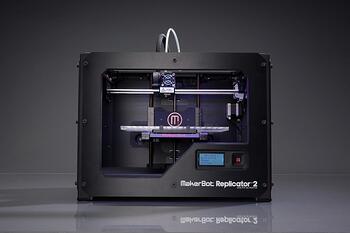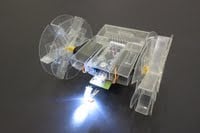STEM + (EdTech x Hands-On Learning) = An Equation for Engaged Students
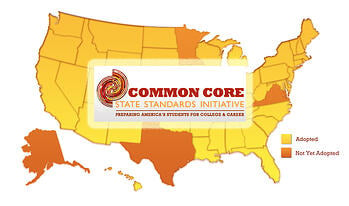
A recent yahoo story disclosed a growing chorus of parental complaints about the difficulty of the new Common Core standards for math. Having trouble with the math themselves while trying to assist their children with homework, parents complain that the standards are simply too difficult for their children. Adding, subtracting, multiplying and dividing they say is now as difficult as calculus. “Satan’s handiwork,” cries one rattled parent.
- 0 Comments
- May 22, 2014 4:36:14 PM
- Posted by Elad Inbar
- Topics: EdTech, National News, Education Politics, 21st Century Classroom
Math curriculum makeover

Math teacher Dan Meyer is at it again! No longer content to just insist that teaching math has got to become entertaining if today’s kids are going to compete with kids from around the world, he’s now on record saying math teaching should get out of the textbook and go multimedia, audio, video -- the whole deal.
He’s got a point: kids live in a multimedia environment, maybe they should be learning in one as well. And as he points out, the multimedia learning environment needn't set the school or the teachers budget back by that much: “...this is an amazing time to be a math teacher right now ...because we have the tools to create this high-quality curriculum.... It's ubiquitous and fairly cheap, and the tools to distribute it freely under open licenses has also never been cheaper or more ubiquitous.”
- 0 Comments
- May 20, 2014 12:00:00 PM
- Posted by Charles Nimrad
- Topics: Math, EdTech, Education, Education Politics, 21st Century Classroom, Student Engagement
MakerBot and RobotsLAB want to put a 3D printer in every US public school
We all need to think creatively about giving our young people the tools to be 'the makers of things, and not just the consumers of things.
The above quote is by Tom Kalil, Deputy Director for Technology and Innovation within the White House Office of Science and Technology Policy, following up on a statement by President Obama in his 2013 State of The Union speech where he said "3D printing has the potential to revolutionize the way we make almost everything. The next industrial revolution in manufacturing will happen in America."
- 0 Comments
- May 19, 2014 1:59:55 PM
- Posted by Elad Inbar
- Topics: EdTech, National News, Education Politics, 21st Century Classroom
Think you can build a super-affordable, super-awesome educational robot?
The African Robotics Network (AFRON) and IEEE Robotics and Automation Society (RAS) sponsor one of several worthwhile initiatives designed to interest young people in a technological future, the Ultra Affordable Educational Robot Project Design Challenge. Specifically, their biannual challenge hopes to "collaboratively create an educational robot that is an order of magnitude less expensive than existing products, to inspire young people around the world."
- 0 Comments
- May 16, 2014 12:30:00 PM
- Posted by Charles Nimrad
- Topics: Robotics, STEM, 21st Century Classroom, International News
MakerBot Announces 3D Printing Innovation Centers for Universities
The nation’s first Makerbot Innovation Center opened February 11, 2014 at SUNY New Paltz in New York. Being a denizen of the heartland a thousand miles and more from either coast, my first thought was, “What in the world is a ‘SUNY New Paltz?’” A quick trip to Wikipedia answered that question: “The State University of New York at New Paltz, known as SUNY New Paltz for short, is a public university in New Paltz, New York.”
- 0 Comments
- May 15, 2014 12:00:00 PM
- Posted by Elad Inbar
- Topics: EdTech, STEM, National News, 21st Century Classroom
Alvin Toffler on keeping up with change in the 21st Century
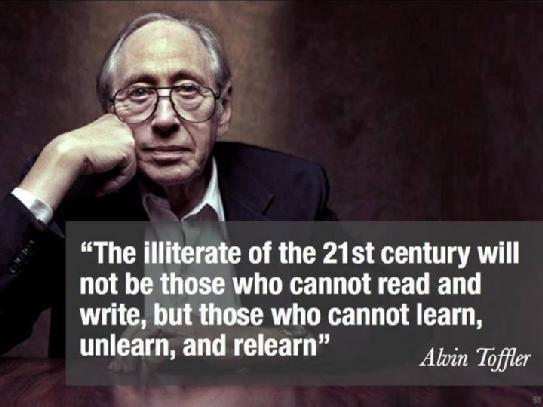
The illiterate of the 21st century will not be those who cannot read and write, but those who cannot learn, unlearn, and relearn.
Alvin Toffler
Although this quote is attributed to famous futurist Alvin Toffler, it seems impossible to discover when he said it -- if he said it -- prior to it appearing on his website. A web search for its source uncovers controversy, nothing conclusive. Some bloggers believe it to be a paraphrase of something he said in one of his books; others are less charitable and believe it should be attributed to another author altogether.
- 0 Comments
- May 14, 2014 12:00:00 PM
- Posted by Elad Inbar
- Topics: EdTech, STEM, Education, 21st Century Classroom
3d printers in Suffolk libraries
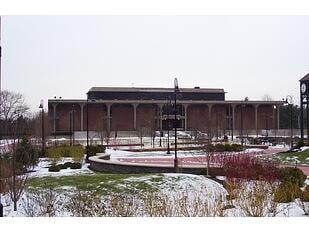 Librarians in Suffolk County, NY believe it is part of their mandate as civilization’s repository of wisdom to allow users access to newer technologies like 3D printers. With a traveling exhibit including a Makerbot 3D digitizer and Makerbot 3D printer, they are out to show us that libraries are not, as one library director, Robert Lusak of the Smithtown Special Library District says, "... just about books and movies. Whatever the latest is in technology, we as the library want to be able to offer that kind of tool to our community." No question about it, 3D printers are the latest in technology, with one soon on its way to the International Space Station so astronauts can produce their own spare parts -- Scotty the chief engineer on the Enterprise would certainly have loved to have one!
Librarians in Suffolk County, NY believe it is part of their mandate as civilization’s repository of wisdom to allow users access to newer technologies like 3D printers. With a traveling exhibit including a Makerbot 3D digitizer and Makerbot 3D printer, they are out to show us that libraries are not, as one library director, Robert Lusak of the Smithtown Special Library District says, "... just about books and movies. Whatever the latest is in technology, we as the library want to be able to offer that kind of tool to our community." No question about it, 3D printers are the latest in technology, with one soon on its way to the International Space Station so astronauts can produce their own spare parts -- Scotty the chief engineer on the Enterprise would certainly have loved to have one!
- 0 Comments
- May 12, 2014 12:00:00 PM
- Posted by Charles Nimrad
- Topics: EdTech, Education, 21st Century Classroom, Student Engagement
Using 3D printer, every student can be a maker
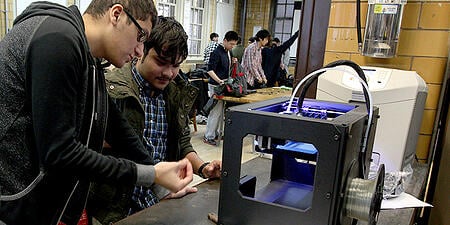 Educators, do you find yourself sceptical about the claims made for 3D printers as valuable teaching tools? I know I have been and I was educated when manual typewriters were the highest tech you were apt to see in high schools. As a freshman, I thought I wanted to go into engineering, but when I took a course in mechanical drawing and found myself pathologically incapable of drawing a straight line I left the engineering route forever. After reading about the experiences students had with 3D printers at Brooklyn Technical High School I lost my scepticism regarding these printers and began to wonder... if they’d had these printers when I was a boy would I have stayed in engineering?
Educators, do you find yourself sceptical about the claims made for 3D printers as valuable teaching tools? I know I have been and I was educated when manual typewriters were the highest tech you were apt to see in high schools. As a freshman, I thought I wanted to go into engineering, but when I took a course in mechanical drawing and found myself pathologically incapable of drawing a straight line I left the engineering route forever. After reading about the experiences students had with 3D printers at Brooklyn Technical High School I lost my scepticism regarding these printers and began to wonder... if they’d had these printers when I was a boy would I have stayed in engineering?
- 0 Comments
- May 9, 2014 12:06:57 PM
- Posted by Elad Inbar
- Topics: EdTech, STEM, 21st Century Classroom, Student Engagement, Project Based Learning
Gates Foundation report - Teachers Know Best: What Educators Want from Digital Instructional Tools
 Instead of simply leaving it to guesswork, the Bill and Melinda Gates Foundation decided to come right out and ask the question “What do teachers want?” The foundation asked the question because “in our work with schools over the last few years, we have heard a common theme: Teachers are trying hard to challenge and engage their students, but they don’t have sufficient choices for effective digital instructional tools that truly meet their needs.”
Instead of simply leaving it to guesswork, the Bill and Melinda Gates Foundation decided to come right out and ask the question “What do teachers want?” The foundation asked the question because “in our work with schools over the last few years, we have heard a common theme: Teachers are trying hard to challenge and engage their students, but they don’t have sufficient choices for effective digital instructional tools that truly meet their needs.”
- 0 Comments
- May 7, 2014 8:00:00 PM
- Posted by Elad Inbar
- Topics: EdTech, Education Politics, 21st Century Classroom, Student Engagement
Bringing the MakerBot 3d Printer into the Classroom
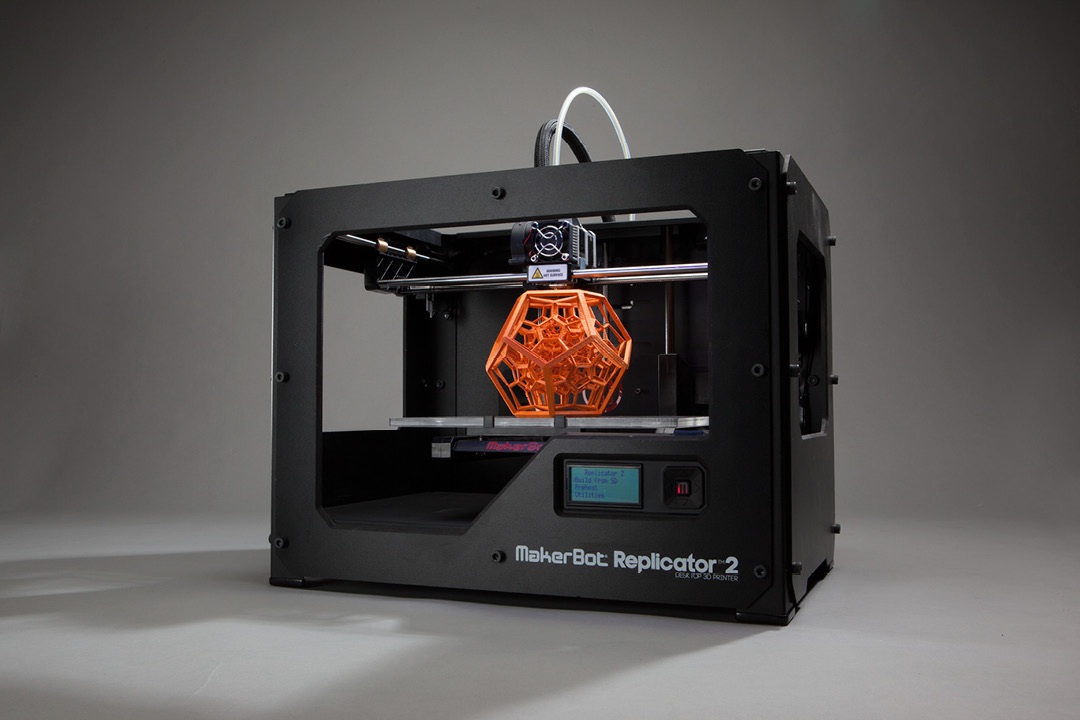
- 0 Comments
- May 5, 2014 9:11:00 PM
Relevant Posts
Popular Posts
Subscribe to Email Updates
-
I Want To Learn MoreADDITIONAL INFORMATION


